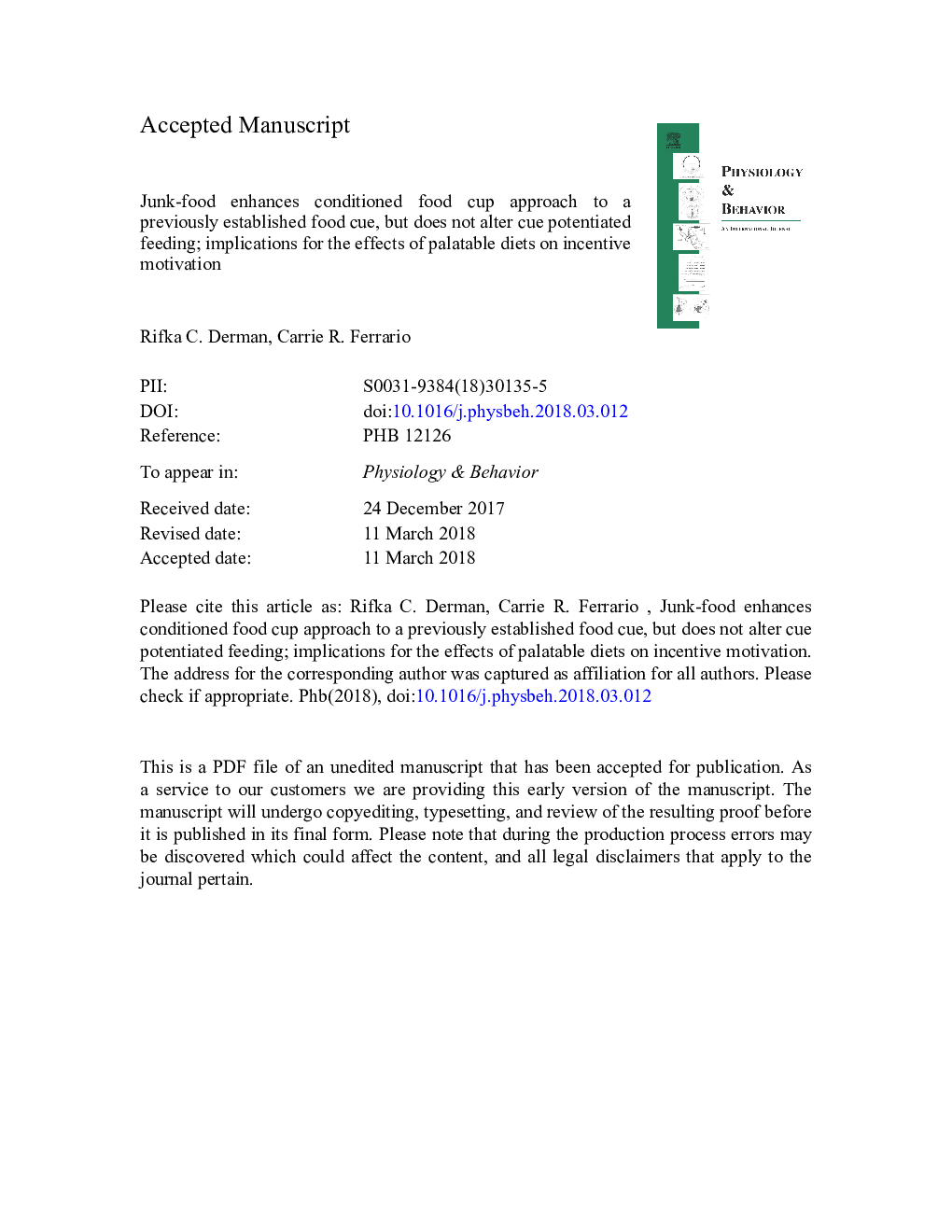| کد مقاله | کد نشریه | سال انتشار | مقاله انگلیسی | نسخه تمام متن |
|---|---|---|---|---|
| 8650462 | 1571127 | 2018 | 31 صفحه PDF | دانلود رایگان |
عنوان انگلیسی مقاله ISI
Junk-food enhances conditioned food cup approach to a previously established food cue, but does not alter cue potentiated feeding; implications for the effects of palatable diets on incentive motivation
ترجمه فارسی عنوان
غذای نوشیدنی، فنجان غذا تهویه شده را به یک نشانه غذایی که قبلا تاسیس شده است، افزایش می دهد، اما تغذیه تقویت کننده نشانه را تغییر نمی دهد؛ تأثیرات رژیم های متناسب با انگیزه
دانلود مقاله + سفارش ترجمه
دانلود مقاله ISI انگلیسی
رایگان برای ایرانیان
کلمات کلیدی
موضوعات مرتبط
علوم زیستی و بیوفناوری
بیوشیمی، ژنتیک و زیست شناسی مولکولی
فیزیولوژی
چکیده انگلیسی
Efforts to stem the global rise in obesity have been minimally effective, perhaps in part because our understanding of the psychological and behavioral drivers of obesity is limited. It is well established that stimuli that are paired with palatable foods can powerfully influence food-seeking and feeding behaviors. However, how consumption of sugary, fatty “junk-foods” affects these motivational responses to food cues is poorly understood. Here, we determined the effects of short- and long-term “junk-food” consumption on the expression of cue potentiated feeding and conditioned food cup approach to Pavlovian conditioned stimuli (CS). Further, to determine the degree to which effects of “junk-food” were selective to Pavlovian motivational processes, we varied the predictive validity of the CS by including training groups conditioned with unique CS-US contingencies ranging from â1.0 to +1.0. “Junk-food” did not enhance cue potentiated feeding in any group, but expression of this potentiation effect varied with the CS-US contingency independent of diet. In contrast, “junk-food” consistently enhanced conditioned approach to the food cup; this effect was dependent on the previously established CS-US contingency. That is, consumption of “junk-food” following training enhanced approach to the food cup only in response to CSs with previously positive CS-US contingencies. This was accompanied by reduced motivation for the US itself. Together these data show that “junk-food” consumption selectively enhances incentive motivational responses to previously established food CSs, without altering cue potentiated feeding induced by these same CSs, and in the absence of enhanced motivation for food itself.
ناشر
Database: Elsevier - ScienceDirect (ساینس دایرکت)
Journal: Physiology & Behavior - Volume 192, 1 August 2018, Pages 145-157
Journal: Physiology & Behavior - Volume 192, 1 August 2018, Pages 145-157
نویسندگان
Rifka C. Derman, Carrie R. Ferrario,
